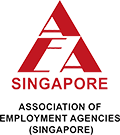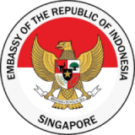In Singapore, hiring a maid or domestic helper for your home has become a common practice among families seeking additional assistance with household chores, caregiving, and other domestic duties. If you are thinking of hiring a foreign domestic worker (FDW), it’s important to know the rules and regulations in Singapore. That is why the Ministry of Manpower (MOM) needs to approve an employer’s application to hire foreign workers and explain their duties and obligations in the Employer’s Guide. This is to make sure that the employer and the foreign domestic worker have a good working relationship.
Understanding the intricacies of maid employment laws is crucial for families hiring or planning to hire foreign domestic workers. This knowledge ensures compliance with legal requirements, promotes fair treatment, and provides a respectful working environment for the maids. Foreign domestic workers who fall under the Employment of Foreign Manpower Act have the rights to receive a salary, have set working hours, and have rest days. These laws apply to maids from countries such as Indonesia, the Philippines, Myanmar, and other countries.
Additionally, employers are required to provide security bonds and purchase medical and personal accident insurance for their helpers, as they are not covered by the Work Injury Compensation Act in Singapore. It is recommended that employers and domestic workers sign a written employment contract to ensure clear communication and an outline of their respective responsibilities.
This guide offers a comprehensive overview of these laws, encompassing work permits, eligibility, salary requirements, working conditions, medical and insurance obligations, legal compliance, and dispute resolution.
Work Permits
For a foreign domestic worker to be legally employed in Singapore, the employer must secure a work permit issued by the Ministry of Manpower (MOM). This permit is a testament that the maid is authorized to work within the country. The process involves several steps including submitting necessary documentation and ensuring that both the employer and the maid meet the MOM’s requirements.
Employer Eligibility
Employers must be Singapore citizens or permanent residents to be eligible to hire a maid. They are also required to comply with medical examination requirements to ensure that the employment does not pose a health risk to the public or the domestic worker.
Medical Care
As an employer, you are responsible for your maid’s medical needs. This includes hospitalization, medication, treatment, etc. Hence why employers should purchase medical and personal accident insurance for their maids.
Food And Accommodation
Employers must provide three meals per day to their maid. If a maid has a different dietary requirement due to religion, health, or personal reasons, employers should accommodate their requests to ensure their maid’s welfare.
Employers also need to provide their maid with proper accommodation ensuring both safety and privacy. It is advisable to offer your maid a separate room of her own with necessary bedding items such as mattresses, pillows, and blankets. These provisions are crucial for the welfare of the domestic worker.
Salary
The Ministry of Manpower stipulates minimum salary requirements for foreign domestic workers which vary based on the maid’s experience, qualifications, and maid’s nationality. These regulations are in place to ensure that maids receive fair compensation for their work. The typical starting salary of Myanmar maids is SGD480 per month, while Filipino and Indonesian maid’s salary starts from SGD550 per month.
Working Hours And Rest Days
Foreign domestic workers are entitled to rest days, typically one day off per week to ensure they have time to rest and recover. Additionally, regulations regarding working hours are in place to prevent overwork, safeguarding the maid’s health and well-being. To avoid disputes, both employers and maids need to mutually agree on which day of the week the maid can take off. This is most likely to be on a Sunday. If employers require a maid to work on her off day, compensation is needed. This should typically be excluded from her basic salary. From January 2023, all domestic helpers must be allowed to take one rest day per month, which cannot be compensated.
Safety
Employers must ensure a safe and healthy working environment for their maids. This includes taking measures to prevent accidents and injuries and addressing any hazards within the household.
Family Integration
Having to adapt to a new family and different household habits can be challenging for your maid. Be patient with your maid and give her time to adapt to her new environment. Treat your maid with respect and welcome her to be a member of your household, ensuring a harmonious working relationship. Employers should also keep updated on the latest regulations related to maid employment in Singapore to prevent running foul of the law.
Dispute Resolution
In cases of disputes or disagreements, there are several avenues for resolution, including mediation services provided by MOM and the Employment Claims Tribunal. These services offer both employers and maids a way to resolve conflicts fairly and efficiently.
Conclusion
Compliance with Singapore’s maid employment laws is essential for ensuring a fair, respectful, and lawful working environment for foreign domestic workers. By adhering to these regulations, employers can foster a positive and productive relationship with their maids. In return contributing to the overall well-being and harmony within the household. Understanding and implementing these laws demonstrate a commitment to the rights and welfare of foreign domestic workers, who play a vital role in many Singaporean families.
Hire A Maid is a trusted maid agency in Singapore. We proudly offer a selection of full-time skilled Myanmar and Indonesian maids, each bringing unique skills and cultural experiences to your home. We are entrusted to provide employers with the best guidance and services in the maid agency industry. At hire-a-maid, we take care of the hiring process for you. Contact us now!






